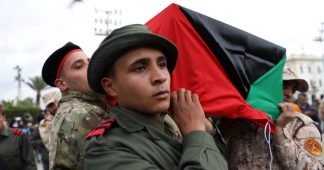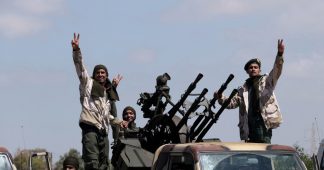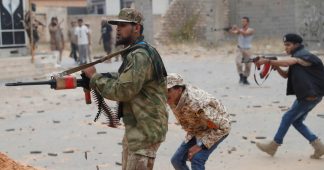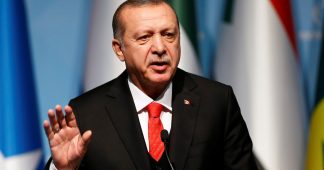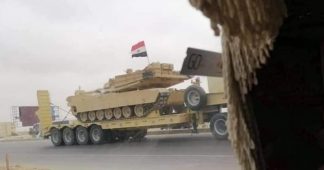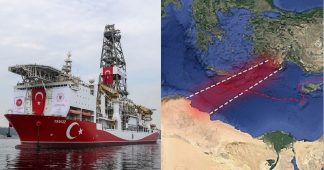Turkey says any Libya ceasefire requires Haftar withdrawal from Sirte and al-Jufra
22 July 2020
urkey and Russia have agreed to keep pushing for a ceasefire in Libya, but Ankara said eastern commander Khalifa Haftar was not legitimate, and his forces must withdraw from key positions for any credible deal to emerge.
Ibrahim Kalin, the Turkish presidential spokesman, told Reuters on Wednesday that any ceasefire deal must be based on a return to the 2015 front lines, which would require Haftar’s forces to pull back from the Mediterranean city of Sirte, the gateway to Libya’s eastern oilfields, and al-Jufra, an airbase near the centre of the country.
“We’ve just reached an agreement with Russia to work on a credible and sustainable ceasefire in Libya,” Kalin said.
“For the ceasefire to be sustainable, Jufra and Sirte should be evacuated by Haftar’s forces.”
Since 2014, Libya has been split between areas controlled by the internationally recognised Government of National Accord (GNA) and territory held by forces loyal to Haftar.
Turkey, along with regional ally Qatar, has backed the GNA, while Russian mercenaries, the United Arab Emirates and Egypt have supported Haftar’s Libyan National Army (LNA).
Both sides in Libya’s civil war have been mobilising for weeks for a battle over Sirte. In January, Haftar’s forces took control of the coastal city, the birthplace of former leader Muammar Gaddafi and once a stronghold of the Islamic State group.
The GNA has halted its advance outside the city, a strategic access point to Libya’s oil fields, which remain under Haftar’s control.
The United States has sent mixed signals to the rival sides over the course of the war, but has become increasingly concerned over Moscow’s growing influence in the North African country.
Last month, the US accused Moscow of sending warplanes to al-Jufra to support Russian mercenaries fighting alongside Haftar’s forces. Russia and Haftar’s self-styled Libyan National Army (LNA) both deny this.
And last week, the US Africa Command (Africom) said Russian mercenaries had planted land mines and improvised explosive devices running from the outskirts of Tripoli to Sirte.
‘Dangerous military adventure’
Earlier this week, Egypt gave a green light for possible military intervention in Libya, saying it was necessary to protect its national security.
Before the announcement, Egyptian President Abdel-Fattah el-Sisi had agreed with US President Donald Trump to maintain a ceasefire in Libya and avoid any escalation.
Turkey’s Kalin said any Egyptian deployment in Libya would hamper efforts to end the fighting and would be risky for Cairo: “I believe it will be a dangerous military adventure for Egypt.”
Turkey and Russia’s joint agreement efforts included a call for measures to allow humanitarian access to those in need and efforts to promote dialogue between Libya’s rival political sides, except for Haftar, who Kalin had said was an unreliable partner after breaking previous ceasefire agreements.
Still, the Turkish presidential spokesman suggested there were others in the eastern bloc who could play a leading role in the dialogue.
“We don’t take (Haftar) as a legitimate actor anyway,” he said. “But there is another parliament in Tobruk. There are other players in Benghazi. The negotiations will have to take place between them.”
